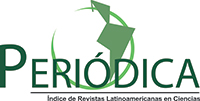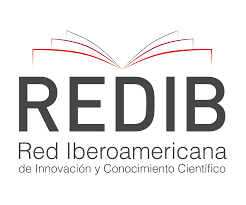FEASIBILITY OF REUSING PFF2 RESPIRATORS DURING THE COVID-19 PANDEMIC IN BRAZIL: QUASI-EXPERIMENTAL STUDY
DOI:
https://doi.org/10.1590/ce.v29i0.95906Palavras-chave:
Coronavirus infections, Nursing, Evidence-Based Nursing, Sterilization, Health Services Administration.Resumo
Objective: Evaluate the feasibility of decontaminating PFF2 respirators in pandemic situations.
Method: Quasi-experiment in a public hospital in South Brazil between April and June 2021. The sample consisted of PFF2 respirators used for six and 42 hours in the intensive care unit, divided into groups (usage time and types of intervention) and a control group. They were evaluated for resistance, integrity, and flammability. Descriptive and inferential statistics were used to compare multiple groups to verify whether the respirator remained safe after decontamination, among the different treatments and the mask usage time.
Results: There was a significant difference in filter efficiency (p=0.002) and resistance (p<=0.001) between PFF2. Decontaminations did not influence integrity when their interaction with usage time was evaluated.
Conclusion: Decontamination, separately or together, was a viable alternative.
Downloads
Publicado
Como Citar
Edição
Seção
Licença
Copyright (c) 2024 Daniela Silva dos Santos Schneider, Ana Maria Müller de Magalhães, João Lucas Campos de Oliveira, Ana Karina Silva da Rocha Tanaka

Este trabalho está licenciado sob uma licença Creative Commons Attribution 4.0 International License.
A Cogitare Enfermagem se reserva no direito de efetuar, no artigo publicado, alterações de ordem normativa, ortográfica e gramatical, com vistas a manter o padrão culto da língua, respeitando, porém, o estilo dos autores.
O estudo publicado é de inteira responsabilidade do(s) autor(es), cabendo exclusivamente à Cogitare Enfermagem a avaliação do manuscrito, na qualidade de veículo de publicação científica. Não será permitido acréscimo ou mudança de autoria durante a etapa de avaliação ou após aceite do texto submetido.
A Cogitare Enfermagem não se responsabiliza por eventuais violações à Lei nº 9.610/1998, Lei Brasileira de Direitos Autorais.
A Cogitare Enfermagem permite que o autor detenha o copyright dos artigos aceitos para publicação, sem restrições.
Propriedade Intelectual e Termos de uso
Responsabilidade do Autor:
Quanto a autoria, os autores necessitam especificar, na página de identificação, qual o tipo de contribuição individual que exerceu durante a elaboração do artigo. Conforme os critérios estabelecidos pelo ICMJE disponível em: http://www.icmje.org/recommendations/browse/roles-and-responsibilities/defining-the-role-of-authors-and-contributors.html .
É importante destacar que são considerados quatro critérios mínimos de autoria, e todos aqueles designados como autores devem atendê-los, são eles:
- Contribuições substanciais para a concepção ou desenho do estudo; ou a aquisição, análise ou interpretação de dados do estudo;
- Elaboração e revisão crítica do conteúdo intelectual do estudo;
- Aprovação da versão final do estudo a ser publicado;
- Responsável por todos os aspectos do estudo, assegurando as questões de precisão ou integridade de qualquer parte do estudo.
Não será permitido acréscimo ou mudança de autoria durante a etapa de avaliação ou após aceite do texto submetido.
Os artigos publicados estarão licenciados sob a licença Creative Commons CC BY 4.0 Creative Commons — Attribution 4.0 International — CC BY 4.0 – A atribuição adotada pela Cogitare Enfermagem é permitida:
- Compartilhar – copiar e redistribuir o material em qualquer mídia ou formato;
- Adaptar – remixar, transformar e construir sobre o material para qualquer finalidade, mesmo comercialmente;
- Atribuição — Você deve atribuir o devido crédito, fornecer um link para a licença, e indicar se foram feitas alterações. Você pode fazê-lo de qualquer forma razoável, mas não de uma forma que sugira que o licenciante o apoia ou aprova o seu uso;
- Sem restrições adicionais — Você não pode aplicar termos jurídicos ou medidas de caráter tecnológico que restrinjam legalmente outros de fazerem algo que a licença permita.
Responsabilidade do Site:
A Cogitare Enfermagem encoraja os Autores a arquivar seus manuscritos aceitos, publicando-os em blogs pessoais, repositórios institucionais e mídias sociais acadêmicas, bem como postando-os em suas mídias sociais pessoais, desde que seja incluída a citação completa à versão do website da revista.”























